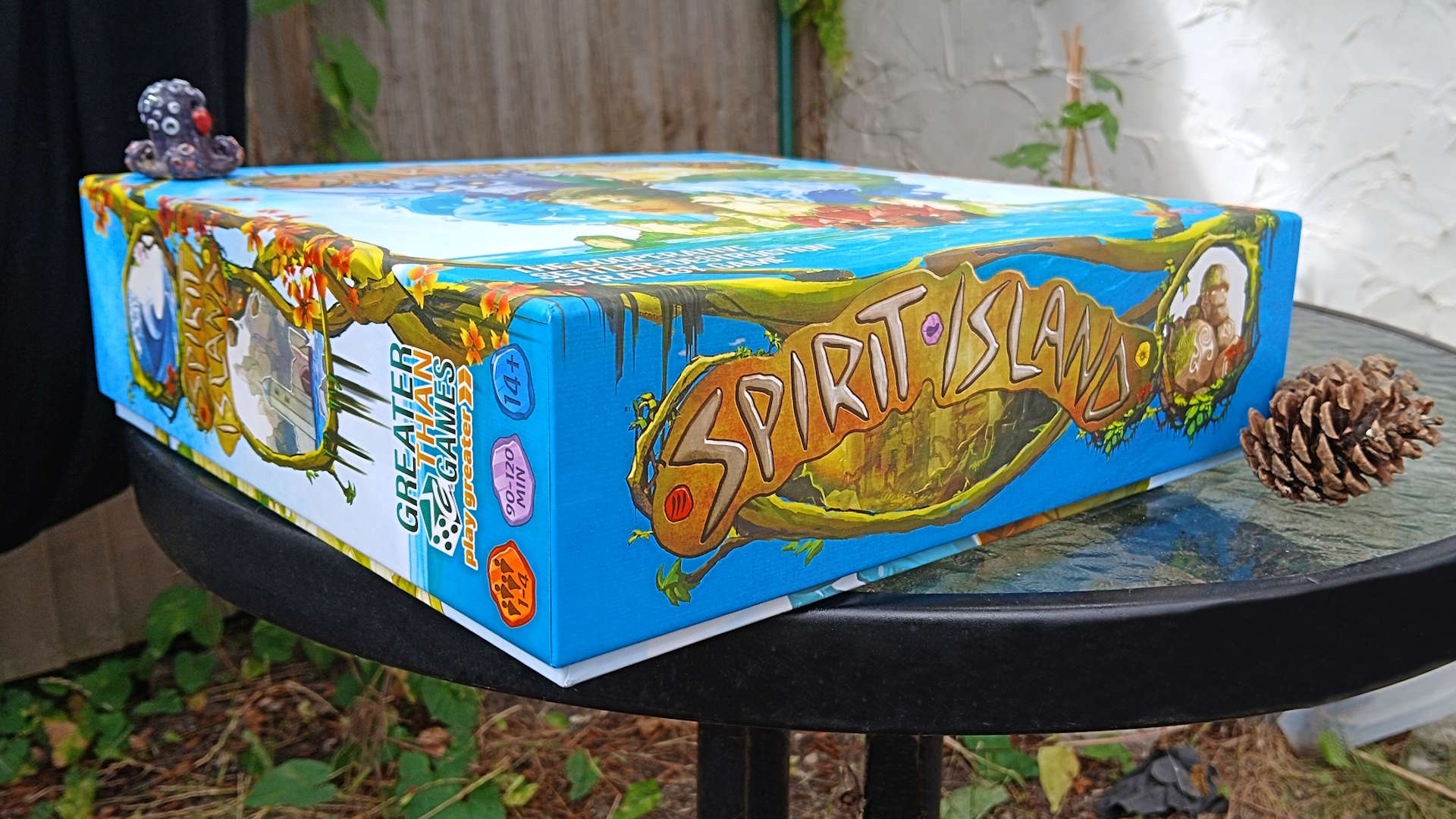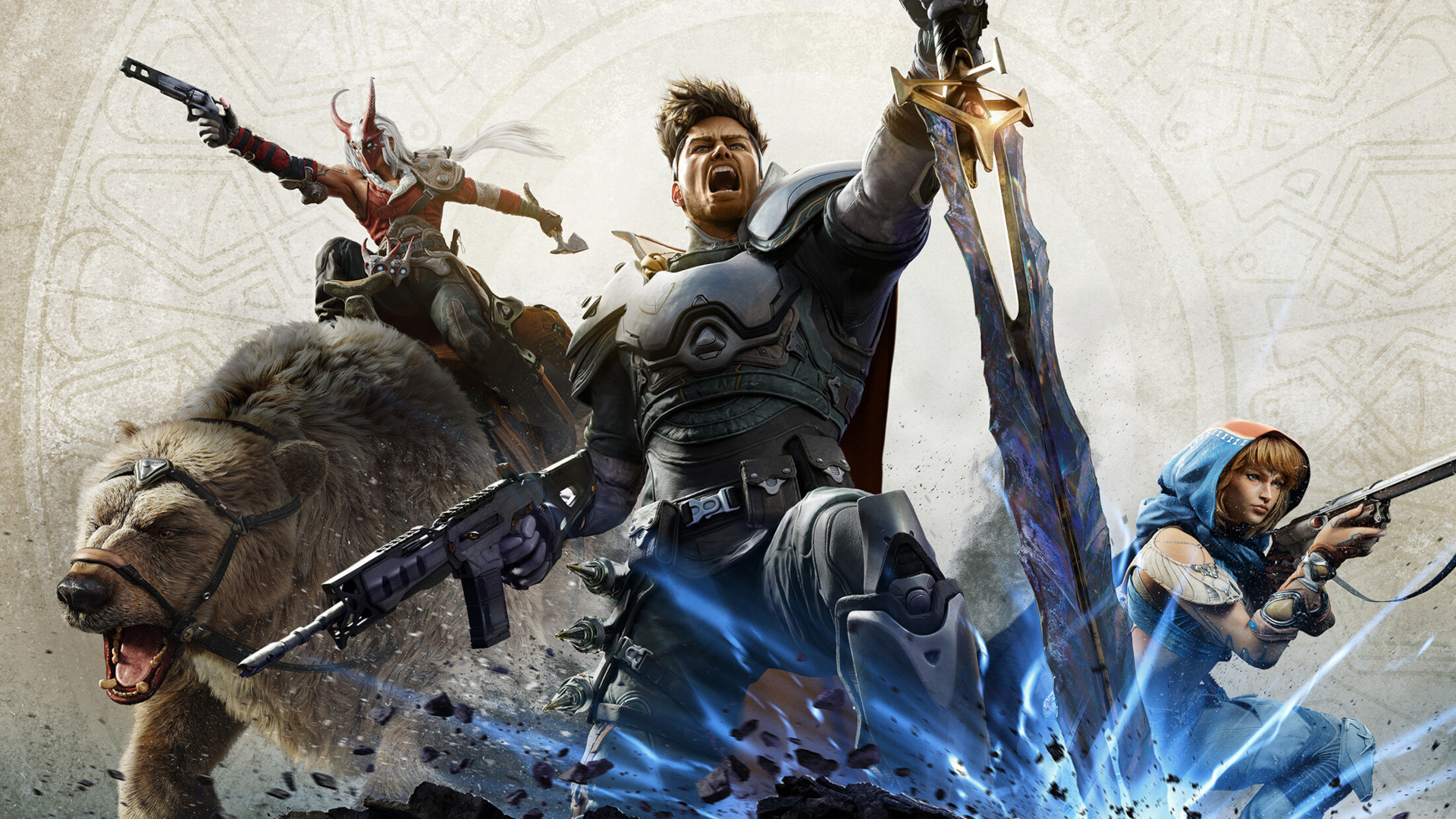GamesRadar+ Verdict
Spirit island raises a raging middle finger to colonization, rather than celebrating it like many euro-style war games. Its unique approach to the genre sets it apart from other strategy games. This game's customizable difficulty levels make it approachable despite the initial learning curve, while it also affords plenty of playstyles and heaps of replayability.
Pros
- +
Deep tactics and strategy
- +
Endless replayability
- +
Feels well balanced
- +
Sliding complexity and difficulty scale
Cons
- -
Everything takes longer than you expect
- -
Steep learning curve
Why you can trust GamesRadar+
Spirit Island is a cooperative fantasy wargame in which players take one the role of supernatural beings – spirits of nature – who seek to reclaim the land from would-be invaders, and strike fear into the hearts of all those who oppose your might. It's a concept that will appeal to fans of eldritch horror and nature lovers alike, but with deep and intense strategy it'll take no small amount of brain power to push back against your foes. Fans of the best board games, roll up; this is a worthy challenge.
While the ethereal artwork nods in a gentler direction, Spirit Island is a brutal board game. One that will have the tactically-minded scratching their heads, and coming back again and again to test out new spirits, strategies, and map layouts. The game puts some incredible twists on area control mechanics, nodding to big names like Risk and many other popular titles, while remaining unique and in its approach to war gaming.
Spirit Island features & design
Price | $64.99 / £75.98 |
Ages | 14+ |
Game type | Area control / cooperative / strategy |
Players | 1 - 4 |
Lasts | 90 - 120mins |
Complexity | High |
Designers | R. Eric Reuss |
Publisher | Greater Than Games |
Play if you enjoy | Risk, Battle for the Deep, 878 Vikings, Undaunted |
- Helpful tutorial and well laid-out rulebook
- Custom, even asymmetric difficulty and complexity options
- Affords every playstyle under the sun
After choosing your starter island and forming your island board, picking a Spirit is the first real step to your Island's inevitable demise. Your inclination toward a certain stat spread (Summary of Powers) governs your initial playstyle, though that may evolve to become more offensive, or take on more of a support role as you build out your deck and try to plug the holes in the table's tactics and overall strategy.
Despite being a medium to high complexity board game, you don't have to jump in the deep end with Spirit Island. The step-by-step tutorial encourages new players to pick from a number of low complexity Spirits to ease them in. Along with a few system simplifications, it's great for ushering an all-new player group into the system, and should you feel confident you can up the complexity of your game individually, without confusing the entire pantheon. The rulebook breaks everything down into contained phases with clear reference cards for everything, too, so it only takes a short(ish) game to learn. That's when the real cerebral work begins.
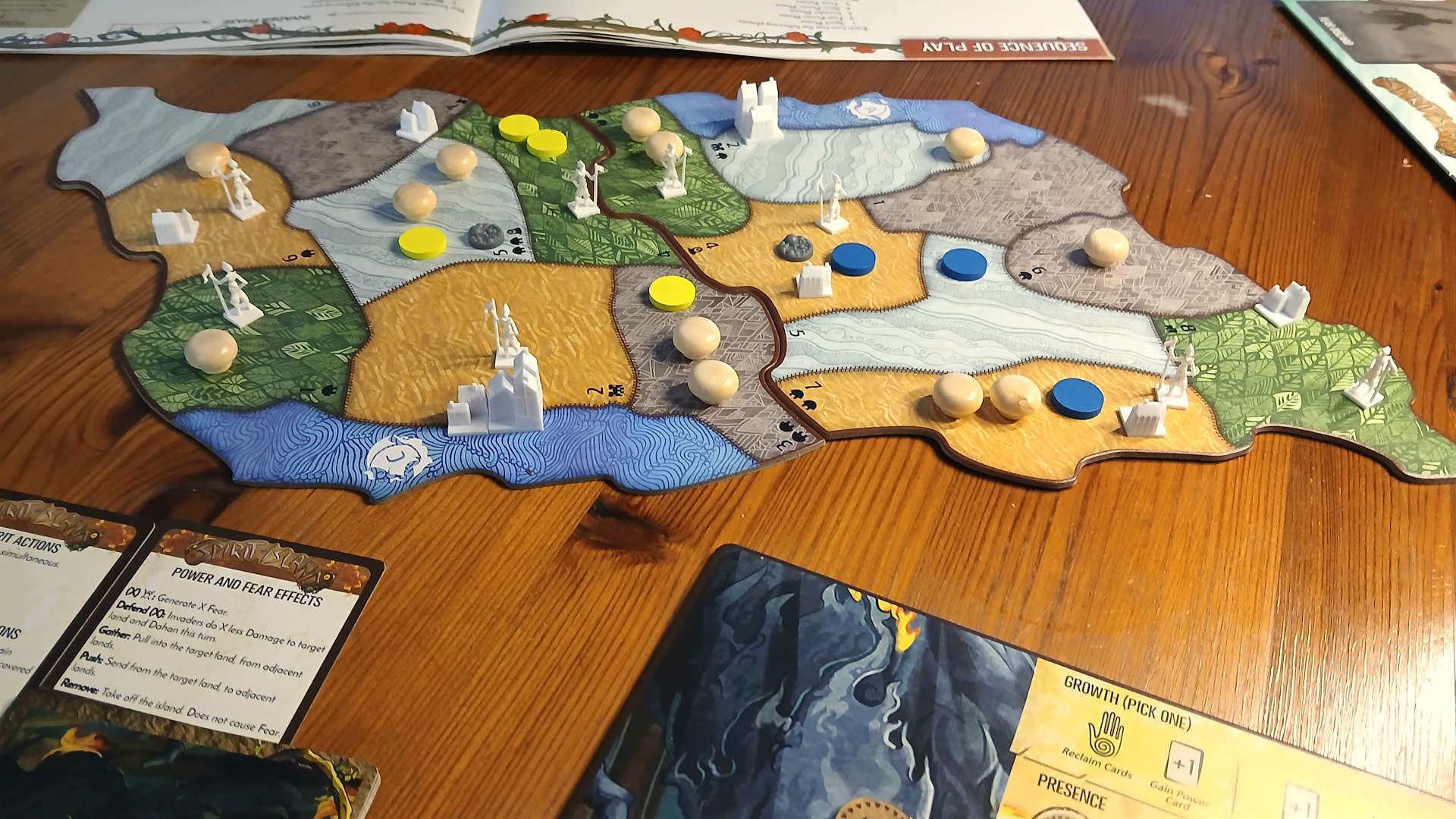
The core loop involves building up your presence on the board, playing an evolving hand of Power cards, and expelling invaders before they can build up and ravage the land. Players must also contest against the blight the Invaders leave behind, which when the land is damaged can cascade, removing Spirit presence.
Each card played comes at a printed cost along with a host of associated elements. When stacked up just right, these elements let you activate your Spirit's innate powers, so building a deck that leans into your elemental prowess is recommended. Some powers are activated swiftly in the Spirit Phase, meaning you can get in early before the enemy has a chance to build up forces, while other moves play out later in the round. It ups the tactical chatter, since timing can be everything.
As the game goes on, Spirits might pick up powers that allow them to use the blight to their advantage, while others might be able to move the otherwise passive native forces into new positions for greater defense. Some might learn to convert enemy units, buff allies, or eliminate entire settlements in one fell swoop. There's a playstyle for everyone here, and plenty of potential to branch out.
Weekly digests, tales from the communities you love, and more
Gameplay
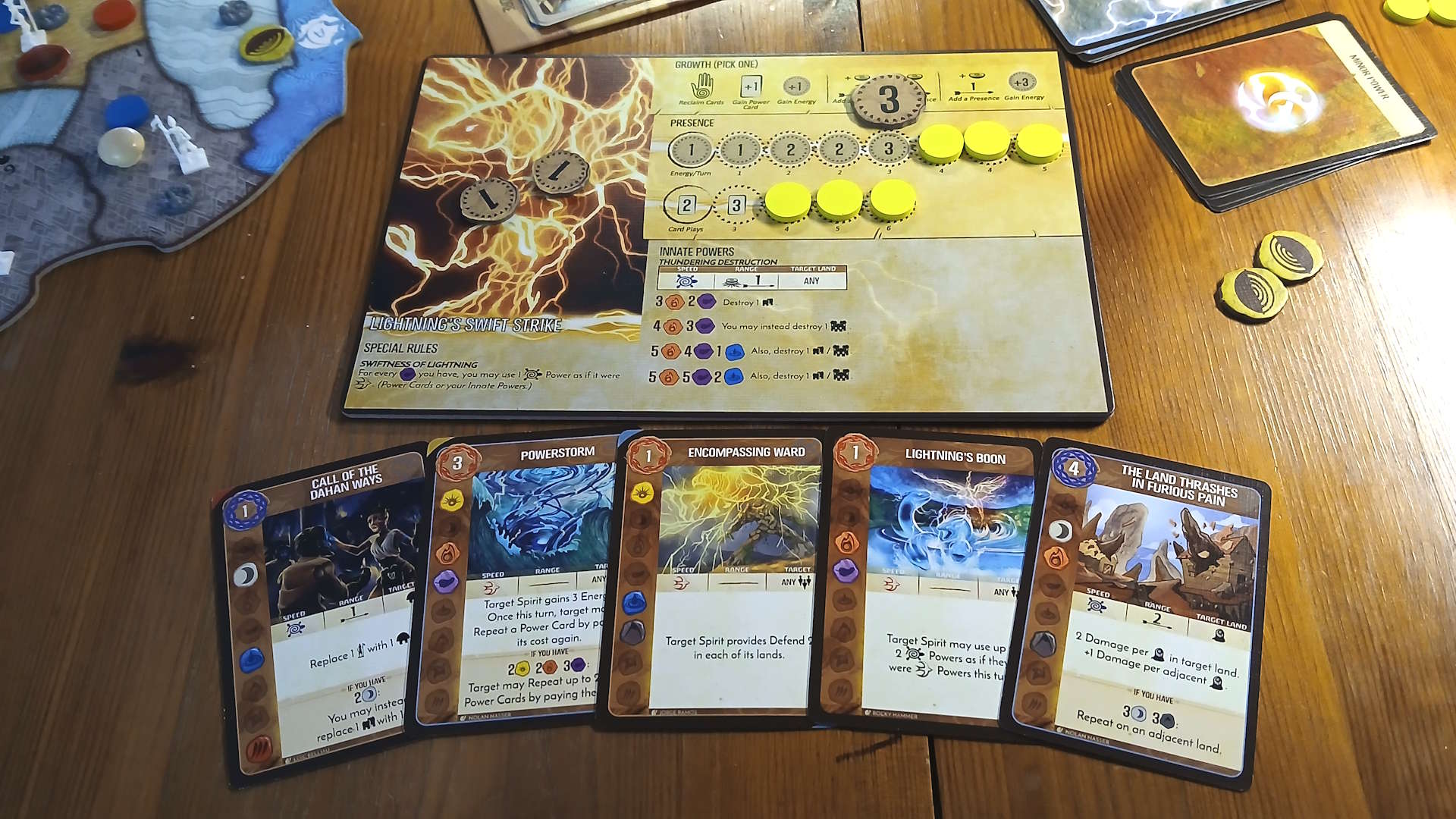
- Fun concept with a lot of potential for emergent narrative to surface
- Games can be slow, but are great for forming a deep strategy over multiple sessions
- Brutal, but with impeccable pacing as your power level increases
Spirit Island is a fantastic concept – one that allows for heaps of emergent narratives and deep, succulent strategies to form over multiple games. The custom difficulty options give players plenty of leeway, though even an 'easy' game is pretty brutal by wargame standards. Since enemy growth is almost perfectly synchronised with your own, matching your steps beat-for-beat unless players are able to coordinate impeccably, the game can feel supremely futile at points.
It's a beautifully dubious dance of destruction, marked by inspired methods of balancing on each side. To give players half a chance against ever more proficient enemy forces, most rounds will see them increasing the number of playable cards and per-round energy they generate. Accumulating Fear tokens is a way to collectively stem the tide, as it increases the Terror Level, ultimately reducing the difficulty of the win-state. It never really feels like you have the upper hand until late game, but being aware of your growing power and lowering win-state makes the constant tension far more palatable in earlier stages.
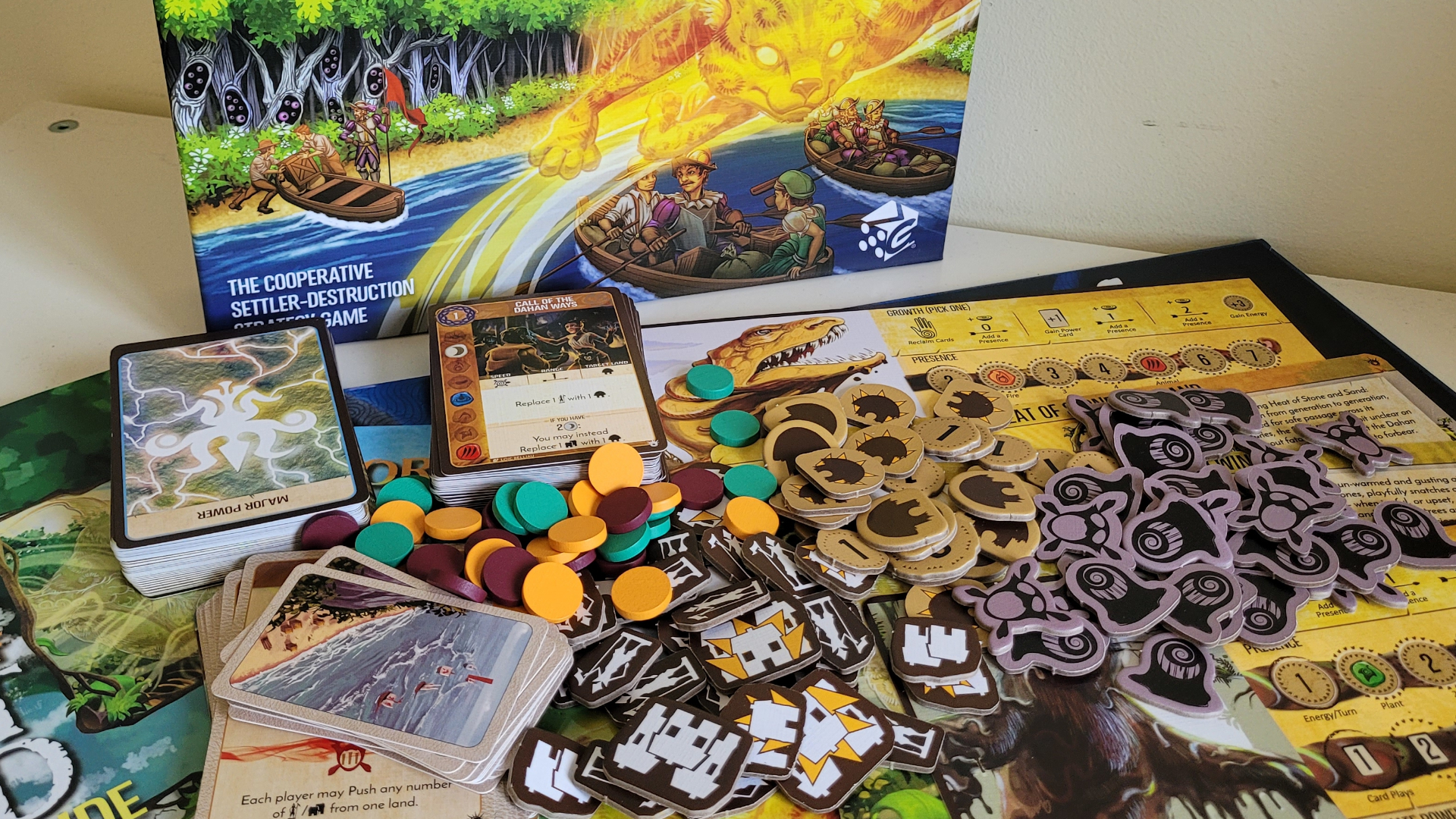
If you're interested in Spirit Island but the cost puts you off, there's (theoretically) a cheaper entry point to the series that our Horizons of Spirit Island review says cuts costs with less premium components even though "the original's tactical complexity is allowed to shine unblemished." However, this is currently difficult to get hold of in the US.
The draw-four-pick-one mechanic for gaining powers provides enough control in building out your deck, and as long as you have presence within range, there's always a choice as to where you might target next. Alongside some foresight as to where the enemy will build and strike next, there's enough player agency to inspire confidence that RNGsus won't swing the game too wildly and ruin it for everyone.
Since every choice matters, the constant pressure can stretch a single game across multiple sessions of several hours a piece. The more players, the longer the tactical backtracking to find the most optimal play. Let's be real, you're going to need a long attention span to enjoy Spirit Island. I'd also recommend separate gaming and dining tables.
Should you buy Spirit Island?
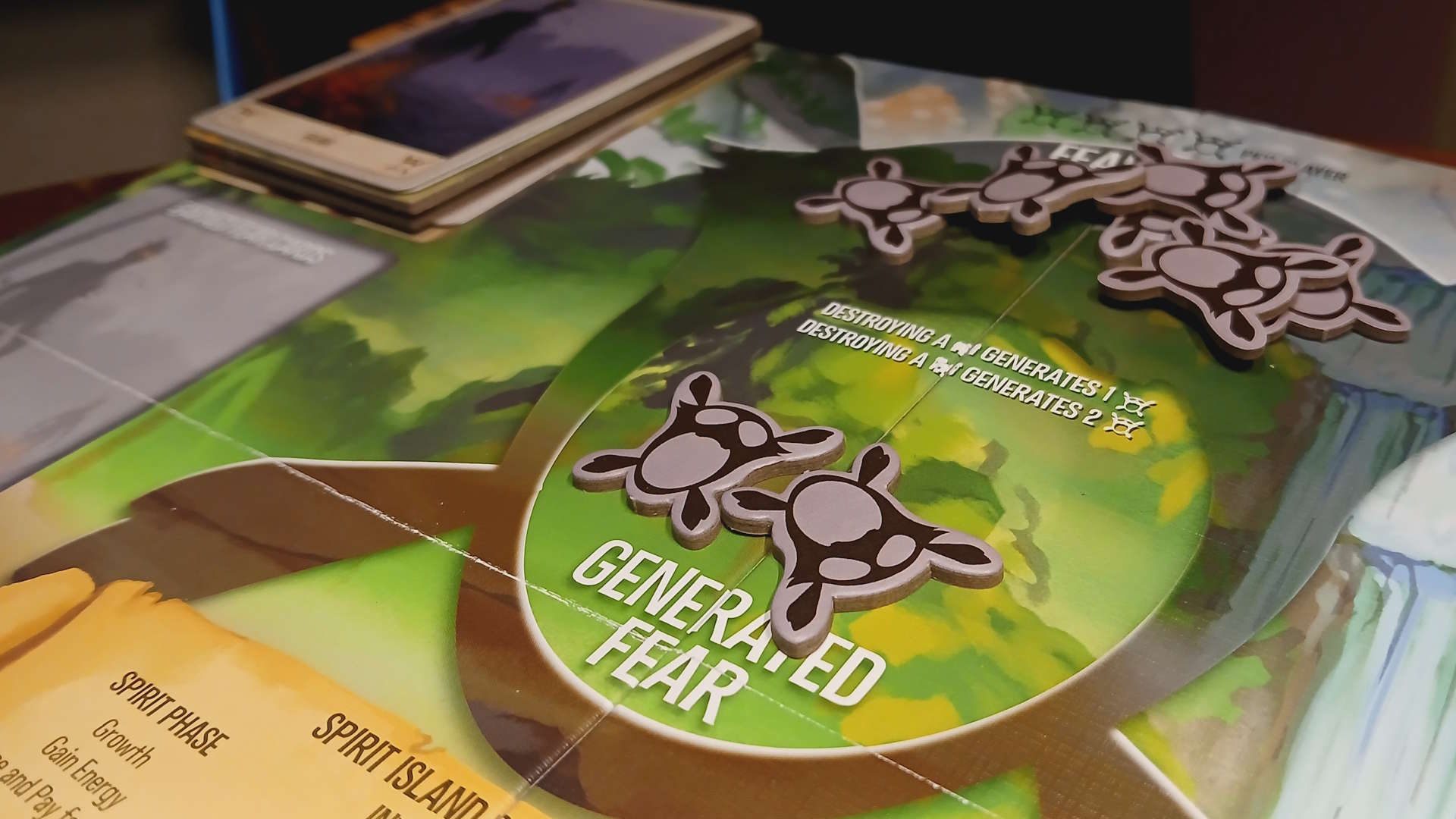
If you're hankering for a tactical challenge, one that will test friendships and neural pathways equally, Spirit Island will deliver a highly customisable test of wits and cooperative skill. While it can feel like a slog, the constant pressure means winning feels all the more satisfying. With endless potential for epic combos and moments of tight corroboration, it's a fantasy wargame for the ages.
It won't suit everyone, but collaboratively pushing back against colonizers is a genuinely refreshing twist on the genre.
Ratings
Category | Notes | Score |
|---|---|---|
Game mechanics | This system is incredibly well-balanced with a good ratio of agency vs. procedurality. | 5/5 |
Accessibility | The learning curve is steep, but symbols and patterning are helpfully distinct and easy to parse. | 4/5 |
Replayability | Multiple playstyles, combos, and map layouts mean no game is ever the same. | 5/5 |
Setup & pack down | Laying out and putting away Spirit Island is relatively simple, with minimal pieces to sort and easy indicators for starter positions. | 5/5 |
Component quality | Components have a lovely quality, but are not the prettiest. Native and spirit pieces are wood, Invaders are white plastic – take from that what you will. | 4/5 |
Buy it if...
✅ You're looking for deep co-op strategy
If you enjoy the thrill of cooperation at the war table, this game will provide plenty of opportunity to scratch that tactical itch.
✅ You have spare time and a spare table
With games often lasting multiple sessions, it's easy to lose momentum. You really have to be in it for the long haul with a consistent group of players.
Don't buy it if...
❌ You're more of a casual gamer
Spirit Island is deeply tactical and requires intense concentration. Casual gamers may be out of their depth, though the custom difficulty makes it a great gateway game.
❌ You prefer a symmetric game
There is little symmetry in Spirit Island, with every character bringing unique abilities to the table. The only mirror is your collective hatred for the invaders.
How we tested Spirit Island
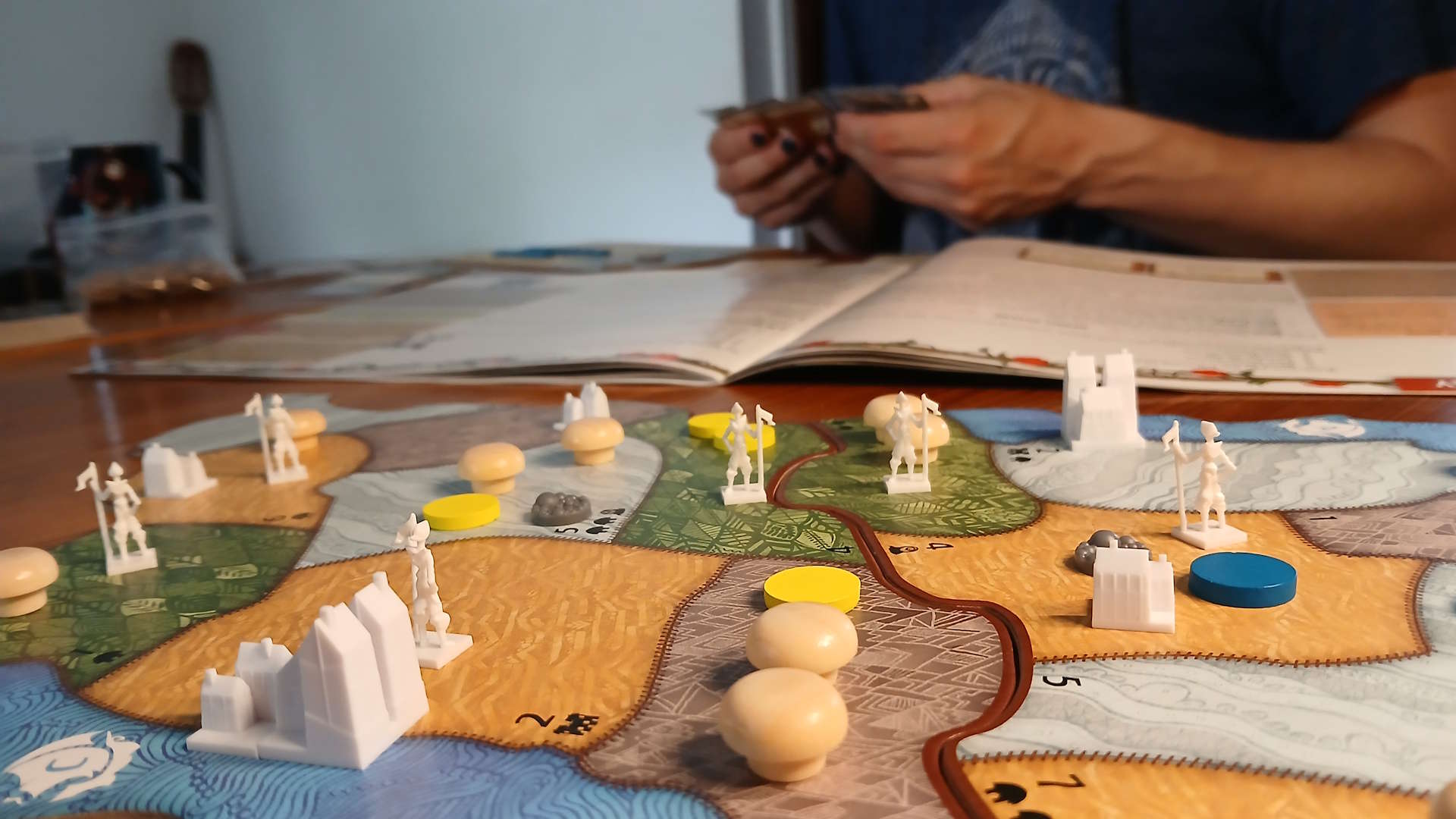
This review was conducted using a sample purchased by the writer.
Our reviewer has owned Spirit Island for some time, so is deeply familiar with how it works and its quirks. They have played it multiple times as a result.
For more, be sure to see our guide to how we test board games or the full GamesRadar+ reviews policy if you want a broader overview.
Want a real challenge? Here are some of the best 2-player board games. If you'd prefer a more accessible game, though, why not try the best family board games?

Katie is a freelance writer with over 5 years experience covering everything from tabletop RPGs, to video games and tech. Besides earning a Game Art and Design degree up to Masters level, she is a designer of board games, board game workshop facilitator, and an avid TTRPG Games Master - not to mention a former Hardware Writer over at PC Gamer.
You must confirm your public display name before commenting
Please logout and then login again, you will then be prompted to enter your display name.
